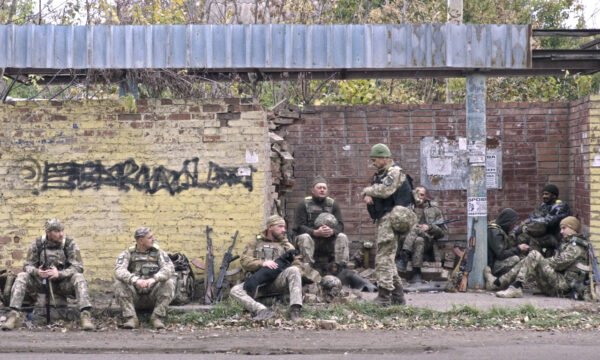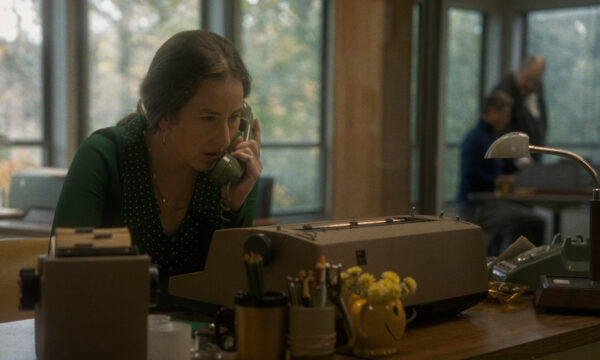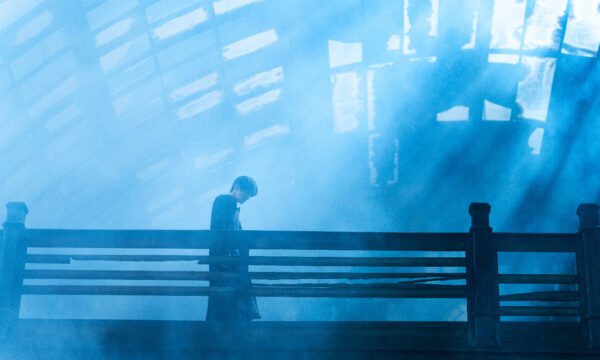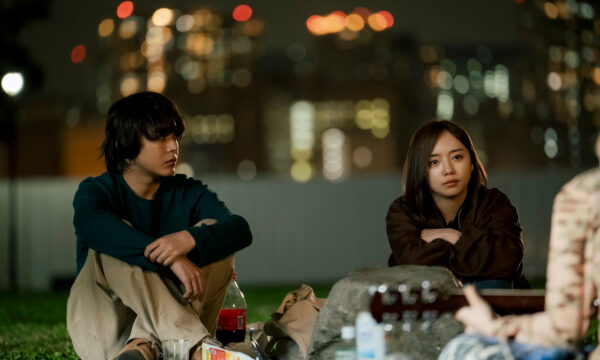Leto press conference: Producer Ilya Stewart discusses the forced absence of director Kirill Serebrennikov
This was a press conference marked by absence. The politics of Putin’s Russia hung over the screening of Leto at Cannes. Director Kirill Serebrennikov has been under house arrest since August last year. Putin was apparently happy to help the festival, but in a statement read to the press, the president claimed that “the Russian judiciary is independent of politics”. There was a stifled laugh near the back.
On the topic of Serebrennikov’s arrest, producer Illya Stewart said: “we woke up to not find our director anymore. We took a pause … [but] he was able to edit the film from under house arrest. In February, he finished it. He had no communication with the outside world”. But Stewart emphasised that at Cannes, the “quality of the film comes first, politics second”, and that he was looking forward to the feature’s reception in Russia.
Leto is an expansive biopic of Viktor Tsoi, a legendary symbol of Russian music and icon of Leningrad’s 80s rock subculture. Playing the lead character, Teo Yoo – a German-Korean actor – couldn’t speak Russian before filming: “it is dealing with the period of his life when he wasn’t famous. My interpretation was naïve, pure, poetic and melancholic.”
“I was born in Germany, and being Korean in a European environment gives you a sensibility. I learned Russian phonetically, which was pretty tough. Although [Tsoi] is not that famous in the western world, in Russia people have a subjective idea of the guy, so it’s a huge responsibility. For them, it’s like me playing Jesus.”
Irina Starshenbaum plays Natasha, the woman caught in a love triangle between Tsoi and his mentor Mike Naumenko. The actress thought the movie was about “the energy of love, of friendship, of loving a baby. It’s very close for every woman”. The subculture Leto depicts was a “huge historical moment for Russia, when rock music was born for our world. It’s very authentic and that’s why it’s special. It’s a story about freedom and love”.
Obtaining the rights for the music – the film features songs from Talking Heads, Iggy Pop and Lou Reed – was a complicated, difficult process, and the monochrome widescreen occurred by removing the safe zones from the camera. Producer Vladislav Opelyants argued that this made the experience “look more real”, while in contrast, the sing-along sequences come with comic illustrations, described as “childish realism, very primitive but still artistic.”
Matters inevitably returned to politics. The picture was privately funded and co-produced in France. Stewart stated that while “more a historical film,” Serebrennikov “speaks about today”. When called out on Russia’s broad campaign of censorship, the producer warned other countries that the “grass is always greener” and we live in a “complicated world”.
A critic from Georgia noted that her country was currently occupied by Russia, thus she and the film’s producers had a common enemy. Stewart looked uncomfortable – complicated world and all that.
Joseph Owen
Photo: John Phillips/ Getty Images
Read more reviews and interviews from our Cannes Film Festival 2018 coverage here.
For further information about the event visit the Cannes Film Festival website here.

























Facebook
Twitter
Instagram
YouTube
RSS